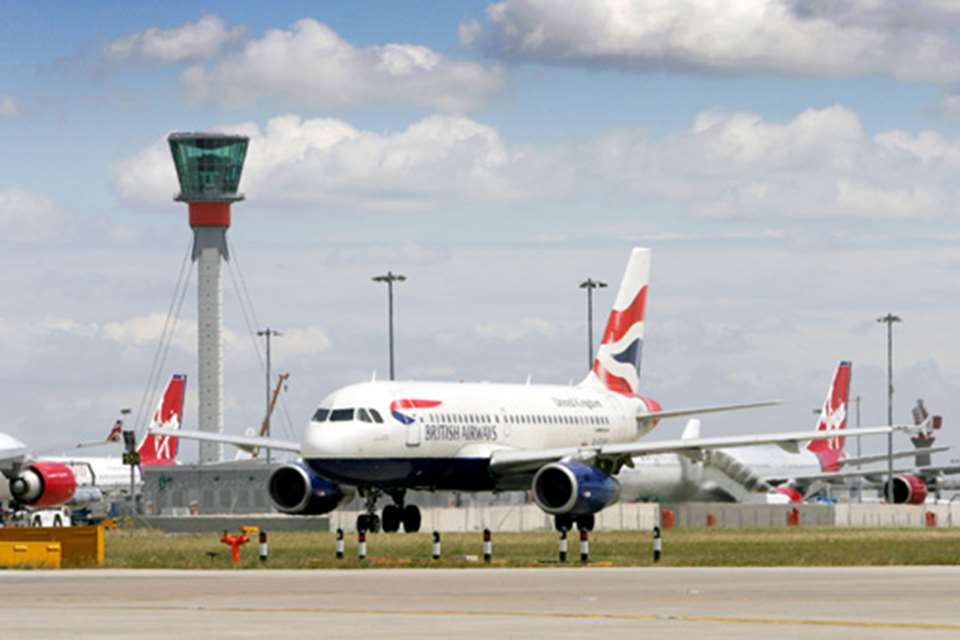Panel vows to hold border agency to account
Neil Puffett
Tuesday, May 3, 2011
Chris Spencer, head of the newly formed Independent Family Returns Panel, tells CYP Now of his plans to improve family removal policy.

The UK Border Agency needs to undergo a major cultural shift if the government's pledge to end child detention is to be successful, the man overseeing the policy has said.
Speaking publicly for the first time in his role as head of the newly formed Independent Family Returns Panel, Chris Spencer told CYP Now that a training programme is in place to help the agency adopt a more child-centred approach to immigration removals, and that the process of change is only beginning.
"The biggest challenge is trying to introduce a culture that is used to looking at children's safeguarding and welfare and where that is embedded in practice," he said. "Changing the culture of frontline workers and the whole training process is the issue. If we can improve the way they engage with families we will have achieved our objective and there are signs of it happening."
Under Section 55 of the of the Borders, Citizenship and Immigration Act 2009, the UKBA is duty-bound to consider children's safety and welfare in the course of its work.
But shortcomings in this area were highlighted in a report published just last month on short-term holding facilities between 2004 and 2010 by HM Inspectorate of Prisons, which noted a lack of staff awareness of their responsibilities in relation to children.
Spencer, previously director of children's services at Hillingdon and lead on child trafficking for the Association of Directors of Children's Services, was appointed to the post of interim chair of the independent panel at the beginning of March.
Spencer said greater focus from individual officers in engaging with children and the agencies around them will improve the picture.
"The whole culture (at the agency) is different to the one I come from," he said. "The process is in its early days but the green shoots of improved practice are there. How the UKBA embraces this will determine how successful it is," Spencer said. "They do accept they are not getting it right at the moment but they are open to learning."
In addition to overseeing improvements in practice, the panel's other main focus is to monitor the cases of families going through the new four-stage family returns process.
Under the new regulations, children may still be held in "pre-departure accommodation" based at Tinsley House near Gatwick Airport for up to 72 hours. There is also the possibility that "early morning visits", referred to by campaigners as "dawn raids", could be carried out on families that try to avoid leaving the country.
Short-term holding facilities at airports, or Tinsley House could be used to house these families prior to departure.
There are currently estimated to be around 600 families with no right to remain in the UK and, of these, it is expected that around 250 cases will eventually come before the panel.
Spencer said the panel has no power to prevent a family being removed, but does have the ability to oppose the process of return if it isn't in the child's best interest. This could include suggesting alternative plans or ensuring that a child sees a social worker or mental health worker before a further decision is taken.
"We are not here as a panel to change or make suggestions about changing immigration policy or law," he said. "We are here to make sure (the UKBA) meets their duties on Section 55. Detention at Tinsley House should be used as a last resort and certainly the view of the family returns panel is that every other avenue should have been explored fully prior to detention of the whole family if we are asked for our support in that decision."
Spencer added that he will not shy away from criticising the UKBA. "My relationship (with the UKBA) hasn't always been one that sees eye to eye. There have been many differences, which is why when they were looking for an independent person to examine the family returns process they were looking for someone with knowledge and credibility in the eyes of the profession who could challenge their procedure," he said.
"This is a genuine attempt on the part of the UKBA to open its doors to further scrutiny in terms of the way it carries out its business."
THE RETURNS PROCESS
- A four-stage process has been implemented for returning families with no legal right to stay in the UK
- It seeks to engage with families during the decision-making process and give parents the opportunity to help decide when and how they return
- "Assisted return" involves UK Border Agency staff meeting the family at a family return conference and explaining their options in returning voluntarily
- "Required return" means that if the family chooses not to depart or take the offer of voluntary return assistance, it will be served with two weeks' notice of removal
- "Ensured return" is where the family does not comply and "firmer options" are used to ensure return
- Both secure (at Tinsley House near Gatwick) and supervised pre-departure accommodation (being developed at Tinsley House) will be available
- The Independent Family Returns Panel is tasked with ensuring that child welfare and safeguarding issues are central to individual return plans
- If the panel of five members disagrees with UKBA return plans, it can oppose them and recommend a different course of action
- If the UKBA does not agree, the case will be referred to the immigration minister, currently Damian Green, for a final decision






